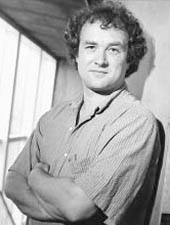Krishnan, N., Felice, C., Rivera, K., Pappin, D. J., Tonks, N. K. (July 2018) DPM-1001 decreased copper levels and ameliorated deficits in a mouse model of Wilson's disease. Genes Dev, 32 (13-14). pp. 944-952. ISSN 0890-9369
Abstract
The levels of copper, which is an essential element in living organisms, are under tight homeostatic control. Inactivating mutations in ATP7B, a P-type Cu-ATPase that functions in copper excretion, promote aberrant accumulation of the metal, primarily the in liver and brain. This condition underlies Wilson's disease, a severe autosomal recessive disorder characterized by profound hepatic and neurological deficits. Current treatment regimens rely on the use of broad specificity metal chelators as "decoppering" agents; however, there are side effects that limit their effectiveness. Here, we present the characterization of DPM-1001 {methyl 4-[7-hydroxy-10,13-dimethyl-3-({4-[(pyridin-2-ylmethyl)amino]butyl}amino)hexadeca hydro-1H-cyclopenta[a]phenanthren-17-yl] pentanoate} as a potent and highly selective chelator of copper that is orally bioavailable. Treatment of cell models, including fibroblasts derived from Wilson's disease patients, eliminated adverse effects associated with copper accumulation. Furthermore, treatment of the toxic milk mouse model of Wilson's disease with DPM-1001 lowered the levels of copper in the liver and brain, removing excess copper by excretion in the feces while ameliorating symptoms associated with the disease. These data suggest that it may be worthwhile to investigate DPM-1001 further as a new therapeutic agent for the treatment of Wilson's disease, with potential for application in other indications associated with elevated copper, including cancer and neurodegenerative diseases.
| Item Type: | Paper |
|---|---|
| Uncontrolled Keywords: | Wilson's chelator copper toxic milk |
| Subjects: | diseases & disorders > congenital hereditary genetic diseases > Wilson's disease |
| CSHL Authors: | |
| Communities: | CSHL Cancer Center Program > Cellular Communication in Cancer Program CSHL labs > Pappin lab CSHL labs > Tonks lab Northwell Health |
| Depositing User: | Matt Covey |
| Date: | 1 July 2018 |
| Date Deposited: | 23 Jul 2018 16:58 |
| Last Modified: | 14 Dec 2020 16:30 |
| PMCID: | PMC6075031 |
| Related URLs: | |
| URI: | https://repository.cshl.edu/id/eprint/36978 |
Actions (login required)
 |
Administrator's edit/view item |




